HP Elite x3 Windows Phone FAQ - Your questions answered
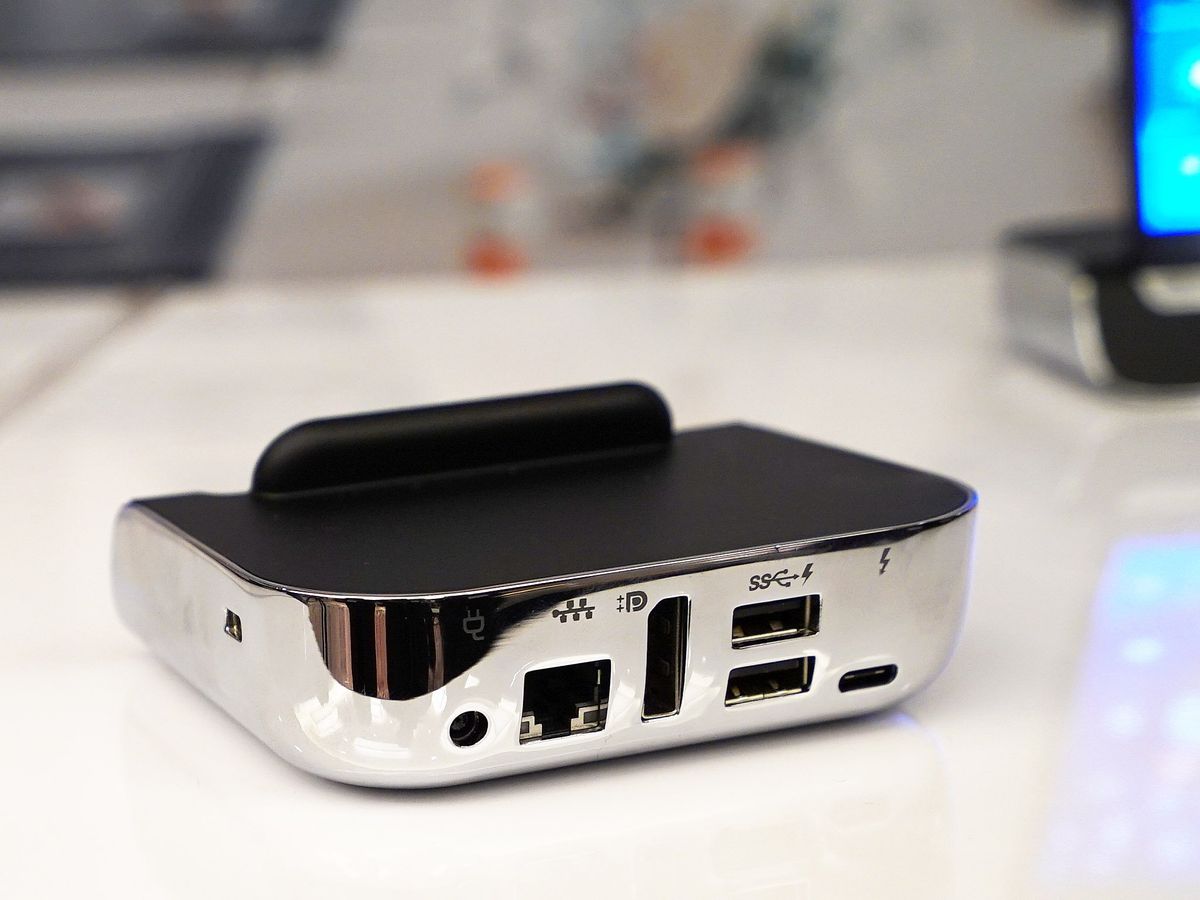
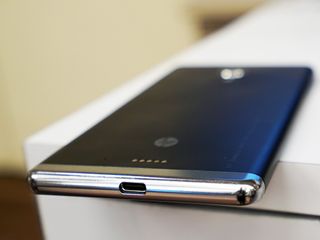
Will the HP Elite x3 be super expensive? What are Pogo pins? Does it have stereo speakers? And can anyone buy one?
For the first time, Microsoft has a phone from a partner that is not aimed at the consumer market but is instead a 100 percent through and through a business device. It is a phone with a purpose and already a long list of companies who are itching for it.
You may have a lot of questions about new HP Elite x3 Windows phone so let's get to it and try to answer them FAQ style.
Why did HP make this phone?
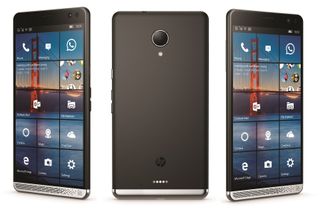
HP is the world's largest retailer of PCs and computing for business. They sell servers, PCs, tablets, laptops, printers, accessories, software, and more to companies all around the world.
The one thing they don't sell? Phones.
Companies evidently approached HP with this kink since ideally those firms would buy everything - servers, PCs, tablets, and mobile phones – all in one package. As of right now, companies overwhelming use – and prefer Windows PC, but they are left with Android or iOS for smartphones often through the less secure BYOD (Bring your own device) system at work.
With Windows 10 Mobile HP saw an opportunity to create a phone from scratch that would complete their portfolio. Even more interesting is that there are already many companies interested in deploying the Elite x3 to reduce costs in the field.
Get the Windows Central Newsletter
All the latest news, reviews, and guides for Windows and Xbox diehards.
In fact, HP notes that they already have 30 companies under NDA working with them to adopt the Elite x3 for their businesses.
The Elite x3 has like…every feature. How? Why?
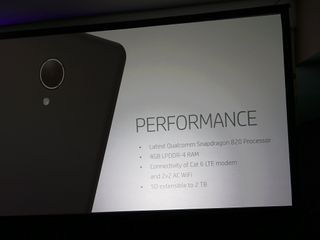
When you look at the Elite X3's specifications, which you can find here in full detail, it is hard to think of something they did not put on this phone.
So why so much stuff? Simple. Companies asked for it.
HP did not design this phone in a vacuum. Instead, they went and spoke to their enterprise customers and asked what their ideal smartphone was. The result is the Elite x3, which admittedly seems like a fantasy phone drawn by some of you in comments.
For instance, they wanted to include an iris scanner because in rugged conditions out in the field a fingerprint reader may be hard to access. Then again, many companies are used to fingerprint readers, but still find iris scanners too premature. So HP is including both.
When I asked HP Senior Product Manager John Hong, who lead the development of the Elite x3, about why they went with 4GB of RAM instead of 3GB and he wryly responded "more is always better". You can't argue with that.
The Elite x3 was also built by some people who used to work at Nokia, Microsoft, and other companies familiar with high-end smartphones. When you start from an idea where there are no limits, the Elite x3 is what you get.
The Elite x3 is going to be super expensive, right?
HP has not announced the price of the Elite x3 and due to the impressive specs, many are assuming it will cost a fortune.
Update: HP has now revealed that the Elite x3 starts at $699 US/699 EUR or about $150 less than a 64GB iPhone 6s Plus.
Not quite.
Many of the costs associated with ultra-high-end smartphones these days are due to marketing. You don't have to look much further than Samsung or Apple to see how much cash can be burned through to reach the public.
HP does not have that problem. The Elite x3 is not going to be sold at Best Buy or your local carrier. There won't be primetime commercials for it, and they are not even targeting regular consumers. This phone is for companies to buy by the dozens, hundreds, or even thousands.
That lack of overhead means HP can keep the cost of the Elite x3 very competitive, and that is their intention.
These details are not to say it will be cheap. In fact, at first, you will likely need to buy the Elite x3 and Desk Dock as a bundle, which will drive up the cost. Later, HP may sell the phone by itself, and they told me its pricing would be on-par with what any flagship smartphone retails for these days.
How fast is the Snapdragon 820?
HP's early benchmarking puts the processor somewhere between a Core i3 and Core i5 for performance, but that should be taken with a grain of salt. In some of our early tests it did, however, get 3x the performance of the Lumia 950 running a Snapdragon 808.
Can anyone buy this phone?
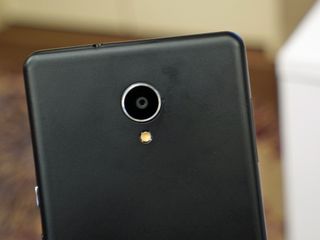
Although HP is aiming this phone squarely (and solely) at businesses, yes, consumers will be able to buy it too.
Details are limited, but you should be able to purchase the phone direct through HP and even Microsoft, who will more than likely sell the phone through their online and physical retail stores.
At this time, there is no reason to expect traditional consumer retail chains or carriers to stock this phone. This lack of availability is a good thing as it means there is a lot less pressure from the consumer market on HP.
Will the battery last all day?
The HP Elite x3 packs a massive 4150 mAh battery. Compared to the Lumia 1520's 3400 mAh battery and it is very likely the Elite x3 will do very well. After all, the phone is built for business users out in the field so having not to charge very often is important.
Toss in the Qualcomm Quick Charge 3.0, USB Type-C and Qi wireless charging and the Elite x3 seemingly does everything right for power management.
Can it run classic Windows desktop apps?
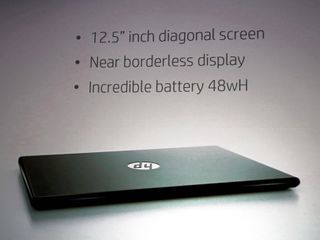
Yes and no. The Elite x3 is still a Snapdragon 820 processor, and it cannot run Win32 apps directly. Instead, it is limited to just apps from the Windows Store.
However, and this is the big deal here, HP has enabled software virtualization so that companies can take their legacy desktop apps and run them through the cloud to the HP Workspace software on the Elite x3. As a result, when companies run the Elite x3 in Continuum mode they can run virtualized desktop apps remotely but securely.
This ability makes the Elite x3 close enough for businesses as an all in one device. It has the security and strength through Citrix and Salesforce plus onboard enterprise-level VPN to let IT departments manage the devices remotely.
What are Pogo pins?
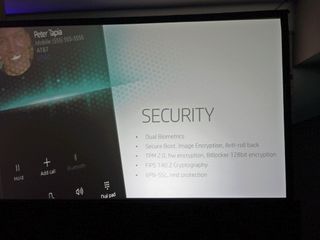
The Elite x3 has five metal circles on the back of the device. These are called pogo pins, and they serve as a hardware interface between the phone and other accessories.
The idea here is that an ISV (independent software vendor) or accessory company can create "jackets" for the phone to add features like an IR scanner, track inventory, or a rugged jacket with a larger battery pack.
HP sees the pogo pins as a way to put the Elite x3 in hospitals, rugged environments, mass retail, etc.
Think of the Elite x3 as a phone for businesses, executives, but also replacing the old Windows CE devices used in retail or factories.
With its pogo pins/jackets, IP 67 designation and ability to pass MIL-STD810G testing the Elite x3 is meant to go anywhere in the world regardless of the conditions.
Does it support wireless charging?
Yes. I am told it support Qi and PMA wireless charging.
What kind of fingerprint sensor is it and why was it not on the demo units?
The fingerprint scanner I am told is the same type found in the current Nexus 6P, which has had very positive feedback (some have called it the best fingerprint reader available). If so, that means HP is sourcing the FPC1025 sensor developed by Fingerprint Cards AB. That sensor can read dry or wet fingerprints in 360-degrees, with a resolution of 508 dots per inch.
Interestingly, at this time, Windows 10 Mobile does not have the drivers to enable this feature, so HP is working with (and waiting on) Microsoft for those drivers at the OS level.
Finally, the Elite x3 prototypes were saw were some of the first ones made and there is still some final engineering to take place. The fingerprint scanner, when integrated, will be on the back below the camera.
Are there stereo Bang & Olufsen speakers? Why?
Yes.
The Elite x3 features dual-front facing Bang & Olufsen speakers. There are two reasons for this choice (1) HP and Bang & Olufsen just have a long-standing partnership, and B&O speakers are already used in HP's high-end laptops (2) the Elite x3 is meant to really excel at making Skype calls.
The Elite x3 also features three integrated omnidirectional microphones with HP Active Noise Cancellation Software and an impressive 8MP front-facing camera that combines two images for better low-light performance. The phone also has a Cat 6 LTE modem and 2x2 AC WiFi to ensure the best connectivity around.
All of that technology is there to provide excellent performance during Skype calls, conference calls, etc.
Why does it come out 'later this summer'?
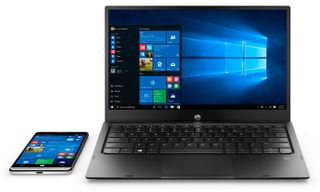
HP is announcing the phone in late February, but the Elite x3 is not expected to hit until later this summer. The reason is simple. HP wants to pilot the Elite x3 with around 30 partners, build up the support channels and documentation, and work with companies to virtualize their software so that it can run through the cloud to the Elite x3 for remote usage of desktop apps through Continuum.
Doing all of that while trying to keep your phone secret is likely impossible. Instead, they are very open about the device so that they can trial it, refine and have it ready to ship with nothing holding it back.
Also, by that time Windows 10 Mobile Redstone 1 should be available and the OS more matured.
Will it be sold outside the US?
Yes. HP will be selling the Elite x3 in the U.S. with certification from AT&T. However, it is unlocked and can run on any LTE network with supported bands (so T-Mobile should be okay as well). HP is interested in getting it to work with Verizon, but there is nothing yet to announce.
HP will also be selling the phone in at least ten non-US markets around launch time as well, and the phone will support up to 15 different bands and be offered as a dual-SIM device too.
Will this be the only phone from HP?
HP would not give details, but they did drop some signals that the Elite x3 was but one of a few devices in this "family" they are considering for mobile. Different price points, sizes, and spec'd devices are likely coming down the road too, and they do not see this as a one-off for them.
How is the phone?
I only spent around 30-40 minutes with the HP Elite x3, but I came away very impressed. The hardware is premium, and it feels great to hold. It obviously has every spec and feature available today, which makes it quite remarkable.
Regarding size, it is smaller than a Lumia 1520 but obviously packs much more power. It is also shockingly light and thin considering how much technology is jammed into it.
The AMOLED display (likely Samsung) was great looking; the buttons for power and volume were done well, and they phone's styling was smooth and graceful.
When you combine the Elite x3 with the Mobile Extender and Desk Dock, it is an impressive array of hardware.
Would I use it over a Lumia 950 or Lumia 950 XL? I would say there is a very high chance. The Elite x3 has a 16MP f/2.0 camera, which sounds decent enough, but likely does not perform as well as a Lumia PureView. That's fine after all this is a business phone, but that is the only drawback I see. Well, that and no Glance screen.
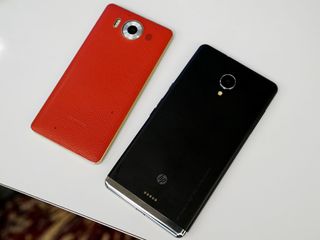
I think HP did a fantastic job with the Elite x3. Moreover, since it is not dependent on consumers for success, it has a very high chance of making a significant dent in the business world. That is an area where Microsoft's mobile ambitions were jettisoned years ago, so it is exciting to see this device lead the way back.
Need more Elite x3 information? Don't miss a thing by following the stories below!
- Elite x3 Main Page
- Elite x3 Full specs
- Elite x3 Discussion Forum
- Elite x3 Photo Gallery
- Elite x3 Hands-on video
- HP Desk Dock and Mobile Extender details

Daniel Rubino is the Editor-in-chief of Windows Central. He is also the head reviewer, podcast co-host, and analyst. He has been covering Microsoft since 2007 when this site was called WMExperts (and later Windows Phone Central). His interests include Windows, laptops, next-gen computing, and wearable tech. He has reviewed laptops for over 10 years and is particularly fond of 2-in-1 convertibles, Arm64 processors, new form factors, and thin-and-light PCs. Before all this tech stuff, he worked on a Ph.D. in linguistics, performed polysomnographs in NYC, and was a motion-picture operator for 17 years.